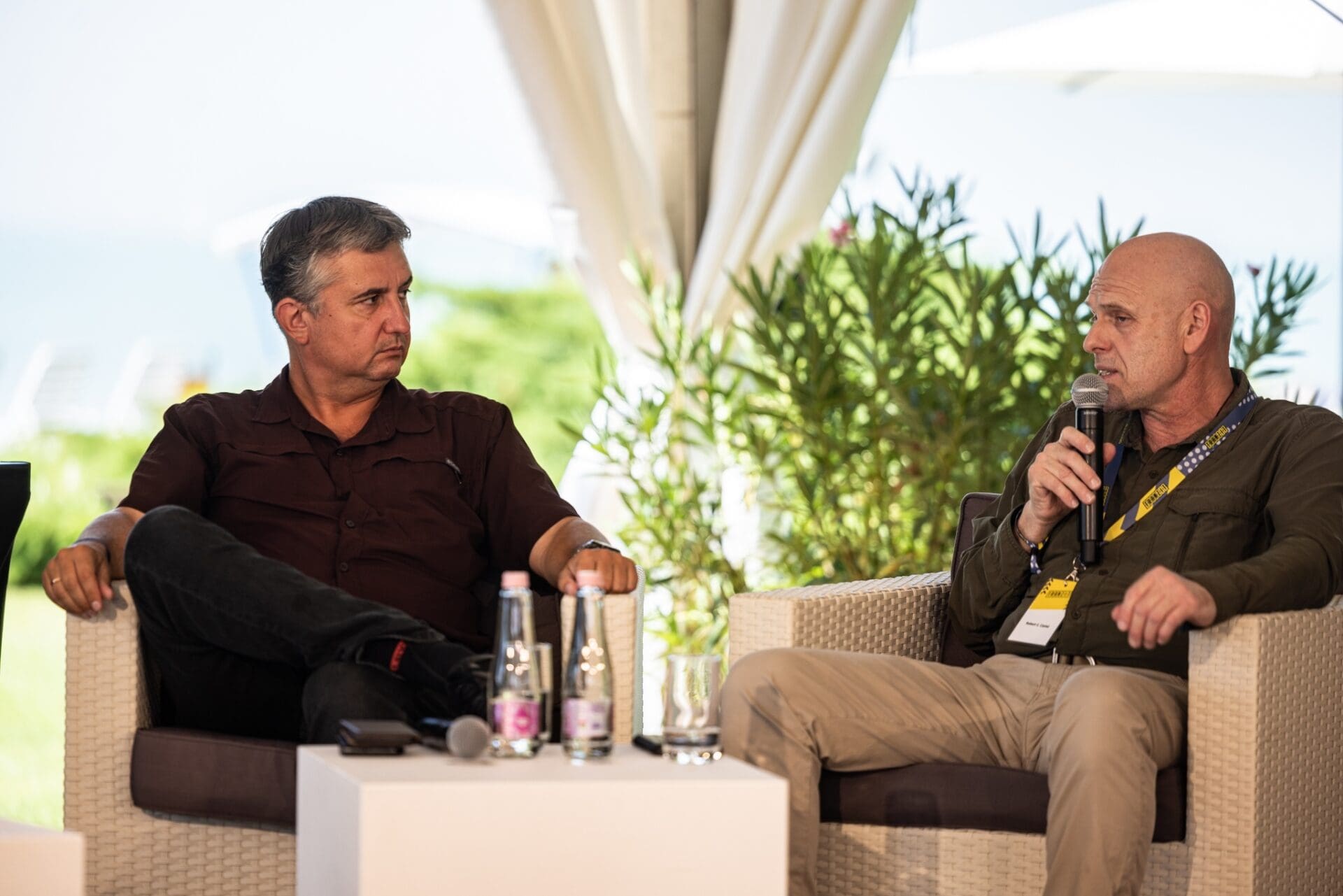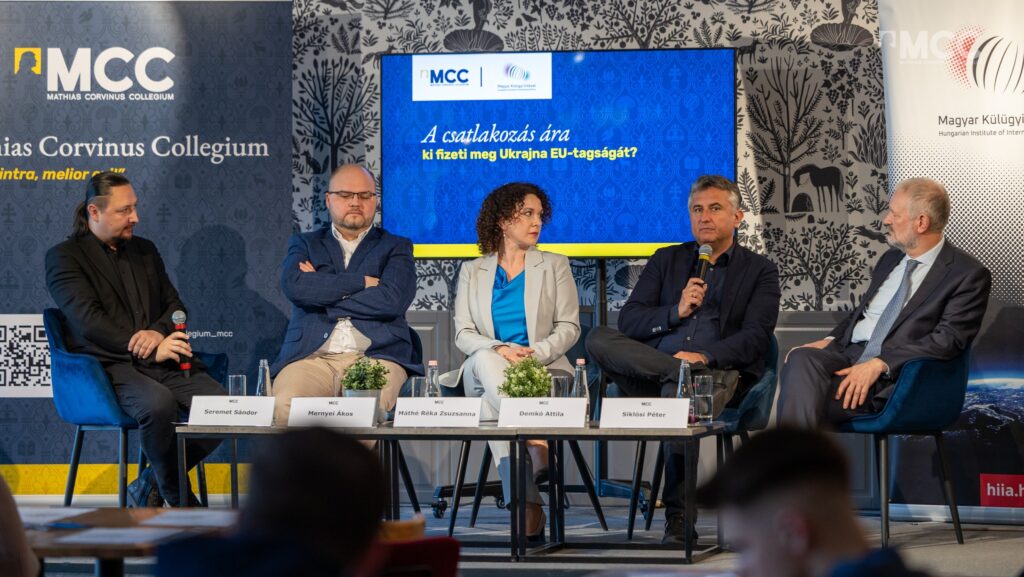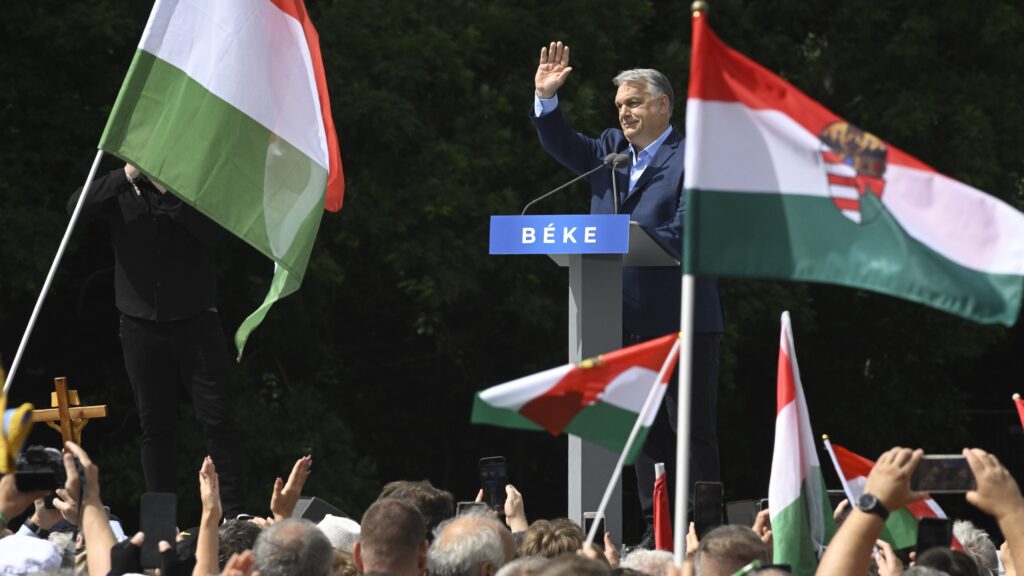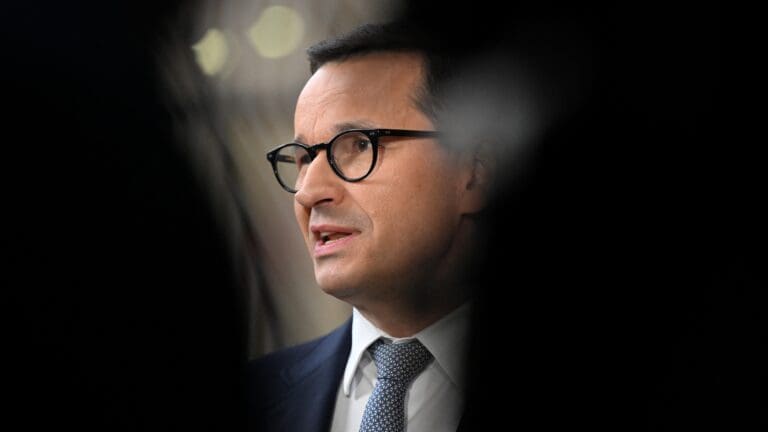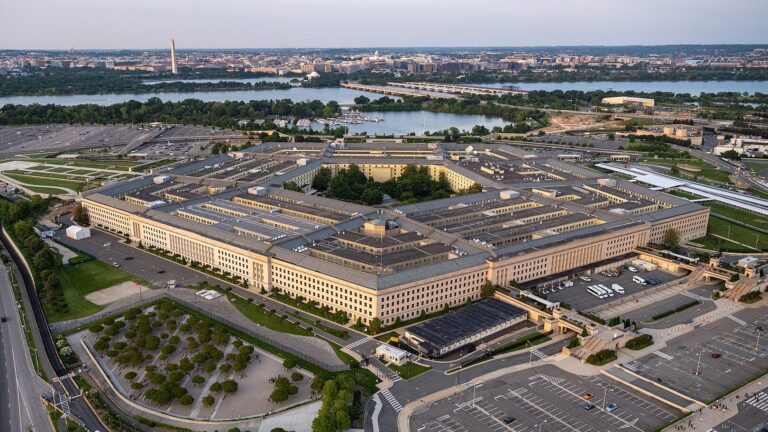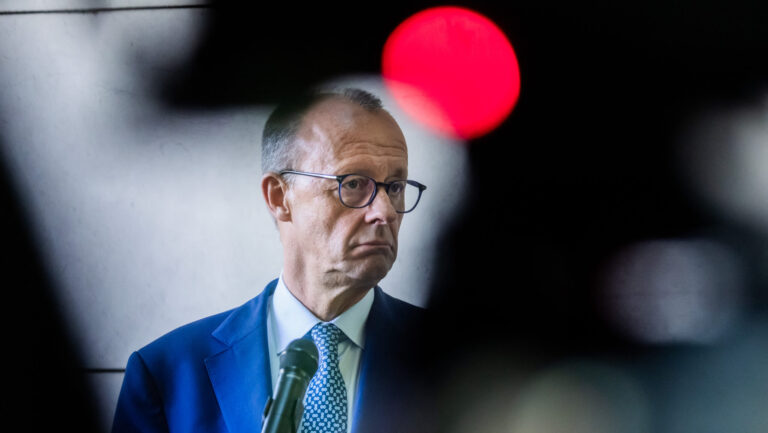The last days of the hot Hungarian summer usually mark one of the country’s most prestigious unofficial political events, called the Tranzit Political Season Opening and ThoughtEXPO, or just Tranzit for short. This year was no different. The large, family-friendly gathering of mostly like-minded, conservative political actors (MPs, academics, journalists, researchers, commentators and more) took place on the beaches of the Tihany Peninsula, overlooking the breathtaking scenery of one of Hungary’s national treasures, Lake Balaton. Yet—as I was standing below the bright blue sky, with the sunlight gleaming atop the surface of the great body of water, listening to the carefree, cheerful chatter of hundreds of guests and attendees—I couldn’t help but feel that something was amiss. I couldn’t shake off this sense of the calm before the storm, no matter where I looked. The general tone of the event was quite optimistic regarding the future of Hungary and its place in Europe, yet concerns, whether spoken or unspoken, about energy security, financial crisis and a possible new conflict looming on the horizon dominated most panels.
Amid the many uncertainties our world has to face today, it is refreshing to listen to sound analyses once in a while. Many must have felt the same way, as the panel that aimed to explain the current geopolitical situation on a global scale, in both practical and theoretical terms, drew one of the largest crowds of the entire event. Members of the panel included two foreign policy and security experts, Attila Demkó, director of Budapest-based MCC’s Geopolitical Workshop, and Robert C. Castel, research fellow of the Israel Democracy Institute. The experts of the panel, titled The end of history or the clash of civilizations – making of the new world order, the two experts shared their insights on the current developments of the Russo-Ukrainian war then went on to outline what global trends we can observe and expect in the following years, and why both Fukuyama’s and Huntington’s analysis can be misleading when applied to today’s changing realities.
When Truth Became a Commodity
When it comes to modern warfare, psychological operations (i.e. propaganda) are just as important as battle tanks and fighter jets. Because of this, both Moscow and Kyiv try their best to convince their own populations as well as the whole globe that they in fact have the upper hand in the conflict. That their armies are superior, and their victory inevitable. Even if reality paints a different picture for both parties of the conflict: the frontlines haven’t changed significantly for two months now, and both countries’ forces seem too exhausted to continue much longer. Yet, giving up is not an option for either of the parties. The experts agreed that the West tends to downplay Russia’s capabilities while cheering for Ukraine’s every minor success, simply because of a general feeling that Ukraine is now fighting for the entire West. That is why Europe and NATO support Kyiv with all the aid and weaponry they can muster. Nonetheless, a healthy dose of realism is essential to understand what the real chances of a Ukrainian victory are.
The truth is somewhere in the middle, observed Demkó, but Russia is slowly winning the war. It has no major infantry units in Ukraine, and is lagging behind technologically as well (compared to the modern, western weapons Kyiv received), therefore it is unable to conduct swift breakthroughs on multiple fronts like the ones we saw in World War II. Yet, ‘time is on Moscow’s side’, he stated. Time is on Russia’s side indeed, Castel confirmed, with regard to both manpower and energy infrastructure. While the meatgrinder at the front is slowly eroding the Ukrainian army, Russia has significantly more personnel at hand, even without general mobilisation which it has so far avoided.
Furthermore, economic pressure can play an even greater role in the outcome. Even though Ukrainian citizens have shown remarkable self-sacrificing heroism and their will to fight on is still unbroken for the time being, this might change drastically as winter starts to set in. Currently, Russia is busy destroying every piece of Ukraine’s energy and utility infrastructure, precisely because it understands that victory over the minds is crucial. ‘It is always willpower that you have to take away first in a war’, stressed Demkó. However heroic Ukrainians are or however many weapons the West gives them every day, if there’s no one to use them, all that is futile. And that scenario seems to be inevitable. If there is no gas, electricity or running water, national resistance evaporates in the cold. Much the same applies to the army, since oilseed diesel in Ukraine is set to run out by November, and once Kyiv is unable to ship out food and ammunition to its soldiers, the frontlines are bound to collapse. Therefore, Russia only has to wait and save its strength. ‘Why launch a Russian offensive now?’ asked Castel, ‘the winter will do the job for them anyway.’
False Prophets of the Emerging World Order
Returning to the title of the panel, the security experts took up the enormous task of untangling the underlying geopolitical dynamics behind the numerous crises we see today. The initial question was whether we live in Francis Fukuyama’s world (described in his book The End of History and the Last Man) which, at the time of the Soviet Union’s demise, envisioned the total victory of the liberal world order with its rule-based, unipolar western hegemony that continues to rule unchallenged ‘till the end of time’; or whether it is Samuel Huntington’s Clash of Civilizations and the Remaking of the World Order that we are witnessing today, a broken, multipolar world of great cultural civilisations, isolated and in constant struggle with each other. Or perhaps neither vision is correct and we ought to seek a third explanation to what is happening today. As one would have expected from the start, this turned out to be what the experts recommend.
Fukuyama’s ‘end of history’ thesis has not been taken too seriously at least for the best part of the last twenty years. When the world saw the Twin Towers crumble and fall in 2001, that’s when we knew Pax Americana was dying and that the unipolarity it achieved by winning the Cold War only meant the slow decline of its power. If we look at the West and its allies today, pointed out Demkó, we see few signs of its global hegemony left. It’s comprised of roughly one billion people, with the smallest birth rates on the globe and steadily declining economies—at least in comparison to other large powers. Apart from Japan, Europe and the Anglo-Saxon world, the US can hardly find any major players on their side now. Smaller ones are still American allies (such as South Korea or Taiwan), but not among those who will decide the fate of our planet in the coming century.
China, for one, has been steadily alienated for years—even in times that call for pragmatic decisions, such as Pelosi’s latest visit to Taipei—to the point when it could emerge as the West’s most serious adversary, prompting a new, 21st century cold war. India, as another emerging superpower, with a one and a half billion population, is not an easy case either. Despite being a geopolitical adversary of China, it’s definitely not on the side of the West either (but rather Russia’s if it had to pick), simply because it had enough of our moral posturing and constant preaching of liberal values. The third swiftly growing region that will undoubtedly have a say in the direction we’ll take in the coming decades is Africa. The continent is set to reach the 2.5 billion population milestone by 2050, and it already has little to no sympathy for the Western world, and is also becoming a steady ally to Beijing. We might also note that Russia’s perceived isolation only exists from our point of view, and is not at all a global position. The West lost almost all respect after repeatedly violating its own rules in Kosovo, Iraq or Syria. If all of that is taken into account, Demkó warned, ‘at least three billion people are not on our side’, and another three are at best indifferent to what might happen to the West.
Picking up the thread, Castel explained why our liberal, rules-based international system is bound to fall eventually. ‘For long decades, the West was the object of jealousy and hatred. We solved half of that; nobody’s jealous now’, he said as the audience burst out in laughter. But jokes are for making hard truths more digestible. Castel pointed out that the rules-based system the West imposed on the world after the Second World War has not been regarded as the safeguard of the peace by others, but as the instrument of Western dominance over them. Great powers like the Soviet Union sought to challenge it whenever it could, while smaller countries accepted it and at least hoped to gain some sort of protection from the deal. But by now we have forgotten our own values, which can turn out to be a fatal mistake, warned Castel. It makes us look weak and incompetent in the eyes of the world, unable to protect even our closest allies. Therefore, it is only a matter of time until the rest of the world, which has always been revisionist in its core understanding of our current age, will move to fundamentally change the current world order once and for all. This is only natural, of course, and runs a cyclical course. From the Westphalian Treaty of 1648 until the present time, we have seen the rise and fall of four different rules-based world orders, all of which were bound to implode under the weight of their internal inequalities. ‘There is a constant oscillation between order and chaos’, said Castel. ‘Now the pendulum swings toward chaos.’
This is why Fukuyama can be regarded as one of the ‘false prophets of the brave new world’. His thesis sets a dangerous trap for the West, sending it on a ‘liberal international jihad’, as Castel put it. Since the victory of the liberal world order is seen as inevitable, all who dare to oppose it are met with zealous crusaders lacking any willingness to find common ground (see Russia). But what about Huntington? Why is he another false prophet and what is the Huntingtonian trap? After all, it does seem like we are in the midst of civilisational struggles as we speak. Castel thinks we are not quite there yet. He said that today’s main frontlines are not at the edges, but within certain civilizations, aiming to crystallise the future borders of each big bloc. Russia versus Ukraine, China versus Taiwan, Shia versus Sunni: these conflicts are all contained inside their respective Huntingtonian blocs, at least for now. Therefore, the danger lies in regarding these as civilisational struggles, warned Castel, because those who do (meaning the West) will use all of their resources prematurely, and won’t be around for the second round, the real ‘clash of civilisations’.
Time for Realists to Take the Stage
So, instead of blindly and mistakenly following these two gentlemen, we should look for alternatives. Both Demkó and Castel proposed that we listen to more realistic and pragmatic thinkers, notably John Mearsheimer and Henry Kissinger. Both have been dismissed as Russophile traitors since the war broke out in Ukraine, even though neither of them have expressed anything that would confirm that label. They don’t support the aggressor, but they don’t support senseless deaths masked as heroism either. What they argue for is dialogue, as simple as that, a pragmatic approach to peace talks with Russia and the rejection of the zero-sum mindset. If peace means giving certain privileges or territory to Russia, then so be it. Only this way can we avoid further catastrophe, they suggest.
We do not have agree with Russia’s reasons for this war, but we can only benefit from accepting that there were some, cultural, historical, and geopolitical alike. And when there are reasons, there are also goals. By acknowledging them, we can finally start looking for mutually beneficial compromises and a way out of this horror. According to Demkó, we need to recognize that the emerging new world order or the war in Ukraine are not based on ideology as Fukuyama thought, and are not necessarily struggles between civilisations as Huntington suggested, ‘but a game of power politics.’ In the world that we’re facing, one of wars, isolation and instability, this game is the only way to ensure survival. As such, we had better start playing by the corresponding rules, otherwise we might not even be on the final scoreboard.

